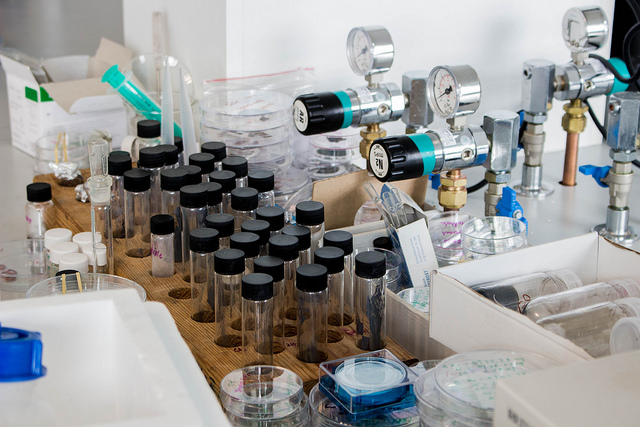Trinity researchers have shown how cancer-killing immune cells are activated and discovered that cholesterol and cholesterol-like molecules called “oxysterols” block these natural defences.
Natural killer cells are immune cells which can kill cancer cells directly. These cells are often defective in cancer patients, a problem which allows the disease to progress. When activated, healthy natural killer cells undergo a process called “metabolic reprogramming”, increasing the rate at which they collect and break-down glucose. This reprogramming is essential in providing these immune cells with the energy needed to respond to threats such as cancer cells.
The Trinity researchers, led by Ussher Assistant Professor in Immunometabolism at Trinity, Dr David Finlay, have reported in the journal Nature Immunology that a protein called Srebp is critical to activating this metabolic reprogramming. They found that Srebp helps to activate natural killer cells, allowing them to respond to danger signals, stimulating their growth.
In a press statement, Finlay talked about the significance of the team’s findings: “Our findings reveal a previously unknown way by which the cancer-killing functions of natural killer cells can be disrupted.”
They have also shown that the activity of Srebp can be blocked by cholesterol and oxysterol, impairing the cancer-killing power of natural killer cells. These findings may explain why the cancer-killing ability of these cells is reduced in obese individuals, who tend to have elevated cholesterol levels. A weakened immune response in obese patients is likely to increase their risk of cancer.
“The next step is to investigate whether the functions of natural killer cells are indeed impaired in individuals with a high cholesterol level, and whether cholesterol lowering interventions can restore natural killer cell function in these individuals”, added Finlay.
The €16 million Ussher Assistant Professorship scheme began in 2015 as part of the College’s five year strategic plan, with the 40 professorship positions being filled in a tenure-track system. Finlay’s position is one of 19 in the Faculty of Engineering, Mathematics and Science.







